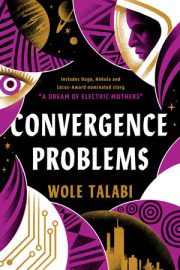Victoria Strauss — Google Book Search Settlement: Opting Out
This morning, I opted out of the Google Book Search Settlement.
For several months, I’ve had no question that I did NOT want my books included in Google’s database. It’s not the display of bibliographic information, or even snippets, that I object to–it’s the possible uses the settlement empowers Google to make of my work down the road (including selling my books in electronic and POD form). If those uses were limited and clearly defined, I might not have a problem–but they aren’t, and I just can’t see allowing such a sweeping license to my work, where the implications of granting that license are so unclear.
My only question was whether my desire not to participate in the Settlement would be best accomplished by opting out–in which case Google would “voluntarily” honor my request not to digitize or display my books, but not be barred from changing its mind at some point in the future; the advantage is that I would retain my right to sue Google for infringement–or by opting in and directing Google to remove my books from its database, in which case I would waive forever my right to legal action against Google for any use of my work. Either option presents the risk that Google might at some future point renege, and I might find my work used anyway.
Two things convinced me that opting out was not only the best, but also the most morally acceptable, decision. The first was reading Scott E. Gant’s objection to the Settlement, which provides a blistering analysis of the Settlement’s raid upon the very ground of copyright, and also of the inadequacy of Google’s efforts to notify copyright holders. It convinced me that I couldn’t accept the Settlement, even to the degree of opting in solely to prevent Google from using my work.
The second was my conviction that the Settlement will not be approved at the Fairness Hearing on October 7. The flaws are just too glaring, the objections are just too persuasive–and then there’s the Dept. of Justice’s antitrust investigation. There could be years of litigation ahead. For writers who’ve opted into the Settlement–or who’ve done nothing and have been opted in by default–what will the rights implications be? I don’t want to be a party to that either.
In an article from the Guardian that I read this morning, an advocate of the Settlement is quoted:
“The obvious social justice and social utility impact that the book project is going to have … are getting lost in the discussion,” said Professor Lateef Mtima, director of the Institute of Intellectual Property & Social Justice at Howard University, a pioneering black college in Washington.
He suggested it would help “so many segments of our society today who for decades have been left out of the communication exchange, who have been on the wrong side of the digital divide”.
I don’t disagree. In fact, I think it’s a compelling argument. The article continues:
However, critics of the deal said that this does not address their concerns with the settlement – which are not about whether digitising books is useful, but whether the specific terms of the deal will hamper innovation and damage authors.
For me, this is exactly the issue. As alluring as is the prospect of a universal, digital world library, I don’t believe that the Settlement, fatally flawed as it is, is the way to establish that.
If you decide you want to opt out, there’s still time–you have till the end of today. See my previous post on opting out for links and information.


